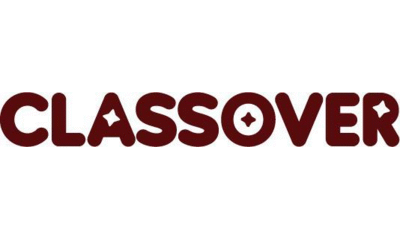Business
iCIMS Acquires AI Company Apli
HOLMDEL, N.J., Sept. 11, 2025 /PRNewswire/ — iCIMS, the talent acquisition software provider trusted by the world’s leading brands, today announced its acquisition of Apli – a fast-growing, AI-powered recruitment automation innovator focused on the frontline hiring experience – to complement iCIMS’ enterprise AI talent-acquisition platform. Apli helps organizations attract, assess and hire frontline talent through advanced conversational AI.
With frontline workers representing approximately 80% of the global workforce —and many of those positions going unfilled—hiring managers are under intense pressure to hire quickly and efficiently. Apli powers multichannel, AI-powered candidate engagement, screening and assessments via mobile-friendly interfaces like text, WhatsApp and web chat. As a result, organizations can dramatically accelerate time-to-hire while improving candidate quality and experience. The company serves numerous leading multinational enterprises with over 10,000 frontline employees and has been recognized as one of Fast Company’s Top 10 Most Innovative Companies in Latin America, as well as a Future of Work leader by MIT’s Initiative on the Digital Economy.
Arrow customers share that the technology automates up to 90% of the frontline hiring process, enabling 10x more hires per recruiter, reducing time to fill by up to 75% and driving 40% lower turnover on average through smarter candidate matching. Apli enables customers to generate up to five times more qualified candidates on average for hourly roles compared to traditional career site application flows, per customer analysis, while reducing new hire turnover through more sophisticated assessments during the application process.
This strategic acquisition strengthens iCIMS’ existing AI market leadership in complex enterprise recruiting and hiring – and builds on its capabilities to support high-volume hiring at scale. By integrating Apli’s conversational AI and assessment tools directly into the iCIMS platform, iCIMS’ new Frontline AI solution will work in harmony with iCIMS Agents to automate even more of the recruiting process across all types of hiring. Through this acquisition, iCIMS will empower customers to deliver faster, easier and more conversational application experiences and assess candidate fit directly within the chat-based flow—resulting in more completed applications, better-fit hires and lower turnover.
“This acquisition accelerates our vision to harness the power of AI across the full spectrum of recruiting and hiring. Combining Apli’s AI-powered technology with iCIMS’ enterprise AI platform will drive more elevated and seamless experiences for recruiters, candidates and hiring managers,” said Jason Edelboim, CEO of iCIMS. “I’m also excited to welcome Apli’s talented team to iCIMS, where their deep expertise in data science and AI will help strengthen our growing investments and deliver faster innovation for our global customers.”
Once integrated, the combined solution, iCIMS Frontline AI – grounded in iCIMS’ certified responsible AI – will improve hiring speed, efficiency and quality while delivering a consumer-grade application and onboarding journey for critical frontline roles.
“This acquisition will usher in a new level of smart, responsible AI across the entire hiring journey,” said Eric Connors, Chief Product Officer at iCIMS. “Frontline workers are the foundation of industries like healthcare, hospitality, manufacturing and retail—but hiring for these roles at scale, while making the process of applying quick and easy for candidates, still presents a challenge for most enterprises. Apli directly addresses the pain points of frontline hiring and enables us to offer enhanced end-to-end capabilities—from corporate roles to high-volume hourly hiring—all within a single, unified platform.”
“Frontline hiring remains a massive, underserved opportunity,” added Vera Makarov and José María Pertusa, co-CEOs of Apli. “Joining forces with iCIMS allows us to bring our proven conversational hiring technology to new markets and help multinational employers reimagine frontline hiring with AI. We’re excited to scale with iCIMS, giving our customers the same seamless capabilities they’ve relied on in Latin America – now on a global stage.”
iCIMS will continue to serve Apli’s existing customers in Latin America, and iCIMS customers will have the option to add iCIMS Frontline AI, incorporating Apli’s conversational engagement and assessment tools directly into the core iCIMS experience.
About iCIMS, Inc.
iCIMS is a leading provider of talent acquisition technology that enables organizations everywhere to build winning workforces. For over 20 years, iCIMS has been at the forefront of talent acquisition transformation. iCIMS empowers thousands of organizations worldwide with the right tools to meet their evolving needs across the talent journey and drive business success. Its AI-powered hiring platform is designed to improve efficiency, cut recruiting costs, and build exceptional experiences for candidates and recruiters. For more information, visit www.icims.com.
Contact
Will DeMuria
Corporate Communications, iCIMS
[email protected]
SOURCE iCIMS, Inc.

Business
How AI Can Support Healthcare Supply Chains With Predictive Tools

Archie Mayani is the chief product officer at GHX, a global supply chain company that uses data and cloud-based technologies to connect healthcare providers like hospital systems and their suppliers.
For more than 20 years, Mayani has worked on clinical and supply-chain health technologies at companies like Change Healthcare and United Health Group.
At GHX, Mayani works to ensure that the company develops technology that can help hospitals procure patient supplies — like implants and IV fluids — as seamlessly as possible. By using AI-powered technologies that can anticipate supply chain disruptions, prioritize them in order of most critical, and identify substitutions, hospitals can be better equipped to provide effective patient care.
Business Insider interviewed Mayani about what sets healthcare apart from other industries when it comes to AI implementation.
This interview has been edited for length and clarity.
Rachel Somerstein: How is healthcare unique as an industry, particularly when we think about the integration of AI?
Archie Mayani: I’m based in Silicon Valley, where everybody wants to fail fast and move forward. But healthcare is very different from other sectors using AI.
When you are building a dating app and your AI hallucinates, it’s kind of funny and makes a great first-date story. When you have a patient on the operating table and you don’t have the right supplies delivered at the right time, it’s scary.
Can you talk about the goals of AI implementation in healthcare supply chain management?
Healthcare is about patient safety and how you use technologies responsibly, always putting the patient in the center. When we think about supply chain management, it’s almost like an invisible operating system in this shared ecosystem of patient care and delivery.
GHX’s mission with AI implementation revolves around delivering the right supplies at the right time to improve the quality of care and make it more affordable.
How did you arrive where you are now?
We have been leveraging AI and machine learning for the last 15 years. A lot of our work during the pandemic involved making supply disruptions more visible, with the goal of making supply chains more resilient and proactive.
One of the most important cases we thought about, coming fresh off the pandemic, was, “Can we look at backorder anticipation?”
It doesn’t matter what the cause is — it can be geopolitical conflict or meteorological tragedies. It could be that a trailer was dislodged and now we’ve lost the supplies on the freeway. But if we can anticipate back orders, we can anticipate disruption.
If the system is intelligent enough, it could recommend nearby substitutes within your distributed area. We started there, on a path of, “We’re going to build this machine-learning model that’s going to be intelligent, anticipate these disruptions, and make substitution recommendations.”
Where is AI in supply chain management working best right now?
We have an agile development approach at GHX, where our customers give us live feedback. We had an “aha” moment from our customers: They said, “This is absolutely what we’ve asked for for the past 20 years. You are starting to predict all of these disruptions, but the disruption of a Band-Aid is not the same as a disruption of IV fluid.”
They asked, “Can you make this technology even more intelligent for what I need, depending on where I think my most critical risks are and what kind of care delivery is most important to my organization?”
So we came up with the idea of clinical sensitivity and a confidence score, essentially to validate whether disruptions are clinically relevant to specific customers.
That was one of the things that changed the trajectory of our AI implementation road map: Just because we can deliver insights doesn’t make them useful; they have to be predictive and personalized.
What does the future of AI in healthcare supply chain management look like?
Since healthcare is different and unique from other industries, our approach is to automate workflows as much as possible using agents while keeping a human in the loop. Once the customer feels confident, we can start fully abstracting those workflows so that AI agents are handling them entirely.
The other place gaining traction is copilot environments. For example, we have a product called the perfect order dashboard, which marries data insights. A customer may say, “Show me the view of my world, of where the supplies are, of where I’m doing an exceptional job with my suppliers getting those supplies on time, making sure that the orders and invoices are paid on time, and show me all of the discrepancies.” Still, that’s not enough.
The copilot allows you to tell a story with that data, very similar to a ChatGPT-like experience: “Show me the top three defaulting suppliers not delivering supplies on time.”
Once you have those supplier lists generated, you can say, “Send an email to XYZ supplier, making sure we have a quarterly business review scheduled, and please attach the perfect order dashboard view showing the last quarter’s trend.”
It might seem small, but it’s a huge value-add. It used to take maybe three or four hours to understand the data, extract insights, and drive follow-up actions and decisions. Now, it takes minutes.
What advice do you have for others in your position or who hope to be?
The hardest or most useful thing you can do is to say no.
In healthcare, everything is urgent — and it truly is. But not everything matters equally. So, the ability to say no to the right things and ensure that you’re focusing on the highest value-added items for your customers is critical when you’re in healthcare.
Big Tech, or even a smaller tech startup, can innovate as research labs and fail. We don’t have that option. So understanding what matters now, what will matter in 10 years, and finding the right balance to focus on the right innovations, becomes critical.
It’s about having the right data, the right governance and mechanisms, and always thinking about performance, security, and privacy. It’s also about making responsible choices on where to invest your energy, so that you’re ultimately not working on the sexiest, coolest, or hardest things.
It comes back to the patient: making care affordable and of the highest quality possible.
Business
The AI Message From Silicon Valley: ‘No One’s Slowing Down’

After a busy day at the Goldman Sachs tech conference earlier this week, I sat down with the firm’s internet analyst Eric Sheridan to take stock. His main takeaway: “No one’s slowing down.”
Despite spending massively on AI infrastructure, almost every tech exec told him AI demand is outstripping their ability to supply intelligence, he said.
This was summed up by executives at CoreWeave, which builds and runs AI data centers. “Unrelenting,” they said, while noting there’s been yet another upward inflection in AI demand in the past four to six weeks.
During the dot-com boom of the late ’90s, internet infrastructure was built out massively based on eyeballs — just the fact that people were looking at websites. This time, there’s actual revenue from consumers and companies paying for AI services, Sheridan noted.
The conference headliner was OpenAI CFO Sarah Friar. The room was packed for her talk. Even the overflow room was full, with many analysts and investors sitting on the floor. I’ve never seen so many loafers and crossed legs at the same time.
Mike Segar/REUTERS
OpenAI is on course to generate $13 billion in revenue this year, but the company is “still massively compute constrained,” she said. That leads to tough decisions such as holding back new products, running some services intentionally slower, and having to choose which research projects get resources and which ones must wait.
This situation is also creating “strange bedfellows,” Sheridan told me. At the Goldman conference, Meta CFO Susan Li said the tech giant is working with Google, an arch rival. Friar mentioned OpenAI is also tapping Google’s cloud for capacity. Those two are going to the mat over the AI search market.
One dark cloud
The only dark cloud at the Goldman conference: Software could be disrupted by AI and that’s weighing on shares of SaaS providers. Friar was asked about this and she didn’t hold back.
In the new world of autonomous software development, it’s now easier to create bespoke software in-house. “Why wouldn’t I code the kind of software that is exactly what OpenAI needs,” the CFO said. “That is going to change the whole face of how software is developed.”
I felt a shudder ripple across the room as attendees considered how much of the world AI might consume in the coming years.
“Short everything,” someone muttered beside me as the audience got up to leave. Analysts laughed nervously as we filed out in a long, slow line.
Sign up for BI’s Tech Memo newsletter here. Reach out to me via email at abarr@businessinsider.com.
Business
Bergquist appoints directors of business automation and AI, marketing

Bergquist Inc. is strengthening its customer support with the addition of Trevor Brewster as director of business automation and AI, a newly created role, and Natalya Zaytseva as director of marketing.
Brewster has spent more than two decades working in entrepreneurship, business management and customer service related roles, with a foundation in technology and finance.
In his new role, Brewster will identify opportunities where automation and AI streamline workflows and reduce repetitive tasks, allowing employees to focus on customer support. This work will include the implementation of tools designed to centralize product information and preserve institutional knowledge to enhance efficiency and responsiveness to customer service.
“I’m excited to join Bergquist at such a pivotal time,” says Brewster. “By bringing automation and AI into the organization’s daily operations, we can simplify complex processes, reduce manual tasks and ultimately serve our customers faster and more effectively. These innovations aren’t about replacing people; they’re about giving our team the tools to focus on what matters most, building stronger relationships with our customers.”

Zaytseva has over two decades of marketing leadership experience, previously serving as marketing director at Crystal Flash Energy and head of marketing operations at Merlin. In her previous role as Americas marketing director at X-Rite Pantone, Zaytseva developed and executed regional commercialization strategies, strengthening lead generation and inside sales functions to achieve the company’s growth goals.
“This is an amazing opportunity to be part of a company that is truly committed to its customers and the industry,” says Zaytseva. “I look forward to applying my experience in marketing and in the energy industry to expand Bergquist’s already-strong brand presence, connect more meaningfully with our customers and ensure our strategies directly support their goals as well as the company’s long-term vision.”
In her new role, Zaytseva will be responsible for advancing Bergquist’s marketing strategy, focusing on expanding brand visibility, deepening customer relationships and aligning market initiatives with business development goals.
“These appointments reflect our commitment to continuous innovation and our focus on providing customers with the best possible experience,” says Lauren Clark, Bergquist CEO. “With Trevor spearheading automation and AI initiatives, and Natalya shaping our marketing vision, we are further strengthening our ability to anticipate customer needs and deliver meaningful solutions that help them grow their businesses. These appointments underscore our mission to combine innovation with expertise, ensuring that our customers have the tools, resources and support they need to succeed.”
-

 Business2 weeks ago
Business2 weeks agoThe Guardian view on Trump and the Fed: independence is no substitute for accountability | Editorial
-
Tools & Platforms1 month ago
Building Trust in Military AI Starts with Opening the Black Box – War on the Rocks
-

 Ethics & Policy2 months ago
Ethics & Policy2 months agoSDAIA Supports Saudi Arabia’s Leadership in Shaping Global AI Ethics, Policy, and Research – وكالة الأنباء السعودية
-

 Events & Conferences4 months ago
Events & Conferences4 months agoJourney to 1000 models: Scaling Instagram’s recommendation system
-

 Jobs & Careers2 months ago
Jobs & Careers2 months agoMumbai-based Perplexity Alternative Has 60k+ Users Without Funding
-

 Podcasts & Talks2 months ago
Podcasts & Talks2 months agoHappy 4th of July! 🎆 Made with Veo 3 in Gemini
-

 Education2 months ago
Education2 months agoVEX Robotics launches AI-powered classroom robotics system
-

 Education2 months ago
Education2 months agoMacron says UK and France have duty to tackle illegal migration ‘with humanity, solidarity and firmness’ – UK politics live | Politics
-

 Funding & Business2 months ago
Funding & Business2 months agoKayak and Expedia race to build AI travel agents that turn social posts into itineraries
-

 Podcasts & Talks2 months ago
Podcasts & Talks2 months agoOpenAI 🤝 @teamganassi














